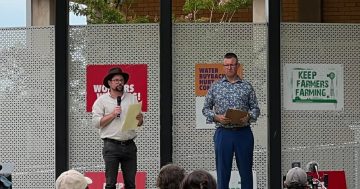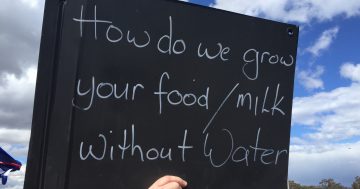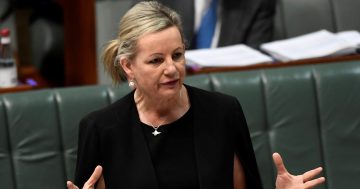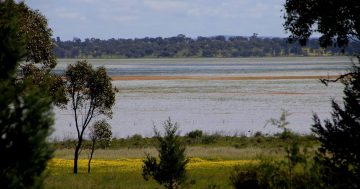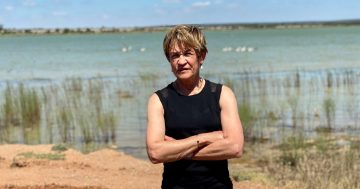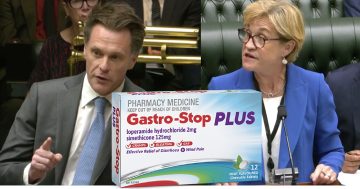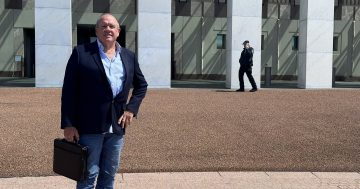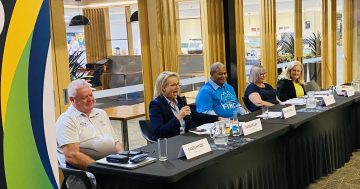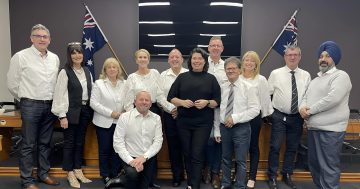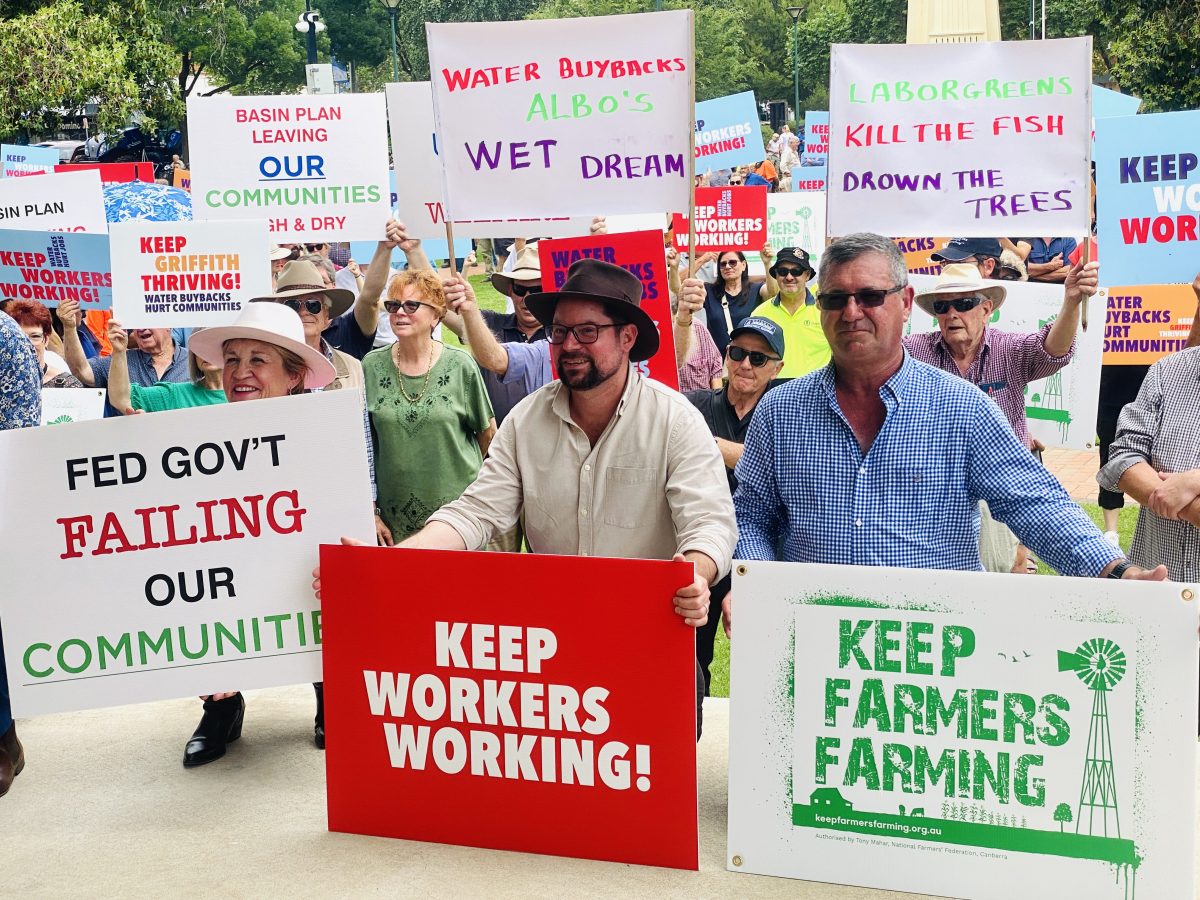
The signs tell the story of how the protesters view buybacks. Photos: Oliver Jacques.
Riverina towns such as Griffith, Leeton and Deniliquin will be destroyed by future Federal Government buybacks of irrigation water, according to organisers of simultaneous mass protest rallies held in each town on Tuesday (21 November).
Almost 1000 people gathered at Griffith’s Memorial Park to protest against a new bill before the Senate that will allow the Government to purchase water entitlements from farmers so the water can be restored to flow down the river.
“Irrigation water is like lifeblood for all these communities on the Murray-Darling Basin,” councillor and rice farmer Glen Andreazza told the crowd.
“If you take enough blood from a human, they will die. If you take enough water from these communities, they will also die.”
Buybacks were introduced in 2007 because governments felt too much water was being extracted from our river system due to irrigation, and that this was damaging the environment.
Hence, the government stepped in to ”buy back” water entitlements from farmers so that this water could be left to flow down the river rather than being used to irrigate crops.
The practice of buying back water was halted under the previous Coalition government, which preferred to reduce water use through investment in water-saving infrastructure and efficiency measures.
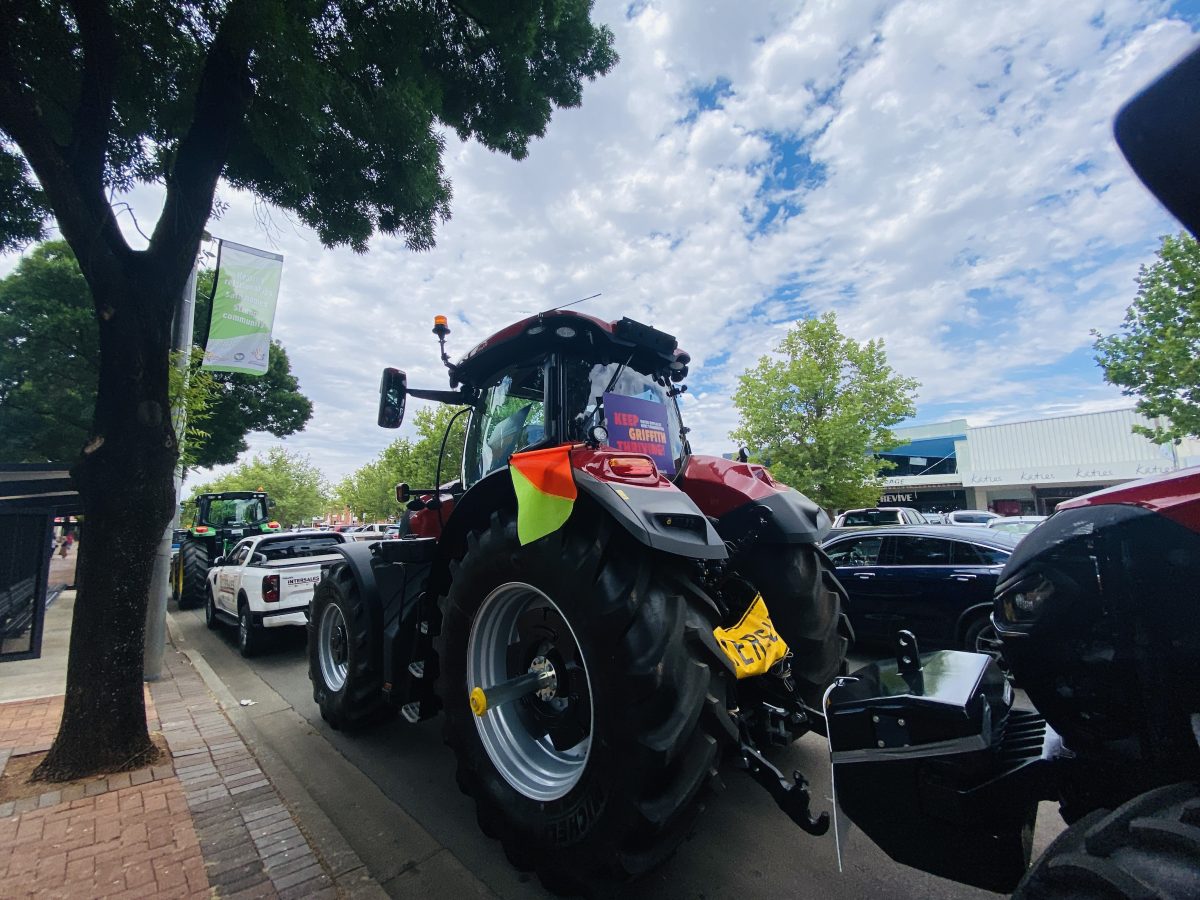
Trucks lined Griffith’s Banna Avenue for Tuesday’s protest rally.
But the Albanese Labor Government is trying to bring back buybacks via its new Restoring Our Rivers (2023) Bill, which passed the House of Representatives and is currently before the Senate.
The legislation is supported by Labor and Greens Senators and opposed by the Coalition and One Nation, meaning a handful of crossbench MPs will decide whether it passes or not and becomes law.
Cr Andreazza was joined on the stage in Griffith by Mayor Doug Curran, independent state MP Helen Dalton and Griffith Business Chamber president John Nikolic, who said buybacks would impact the whole town, not just irrigators.
“Without irrigation, Griffith and its proud contribution to Australia’s cultural life would not exist,” Mr Nikolic said.
“Why should a shop on Banna Avenue be punished by the failure of State and Federal governments to deliver on [water-saving efficiency] projects?”
This view was echoed by 79-year-old Pat Cox, a Griffith ex-teacher who grew up on a rice farm.
“It’s not just about farmers … if they take away our water, our schools decline, enrolments go down, teachers leave, they’ll take away our hospital services, our doctors and our transport services,” she said.
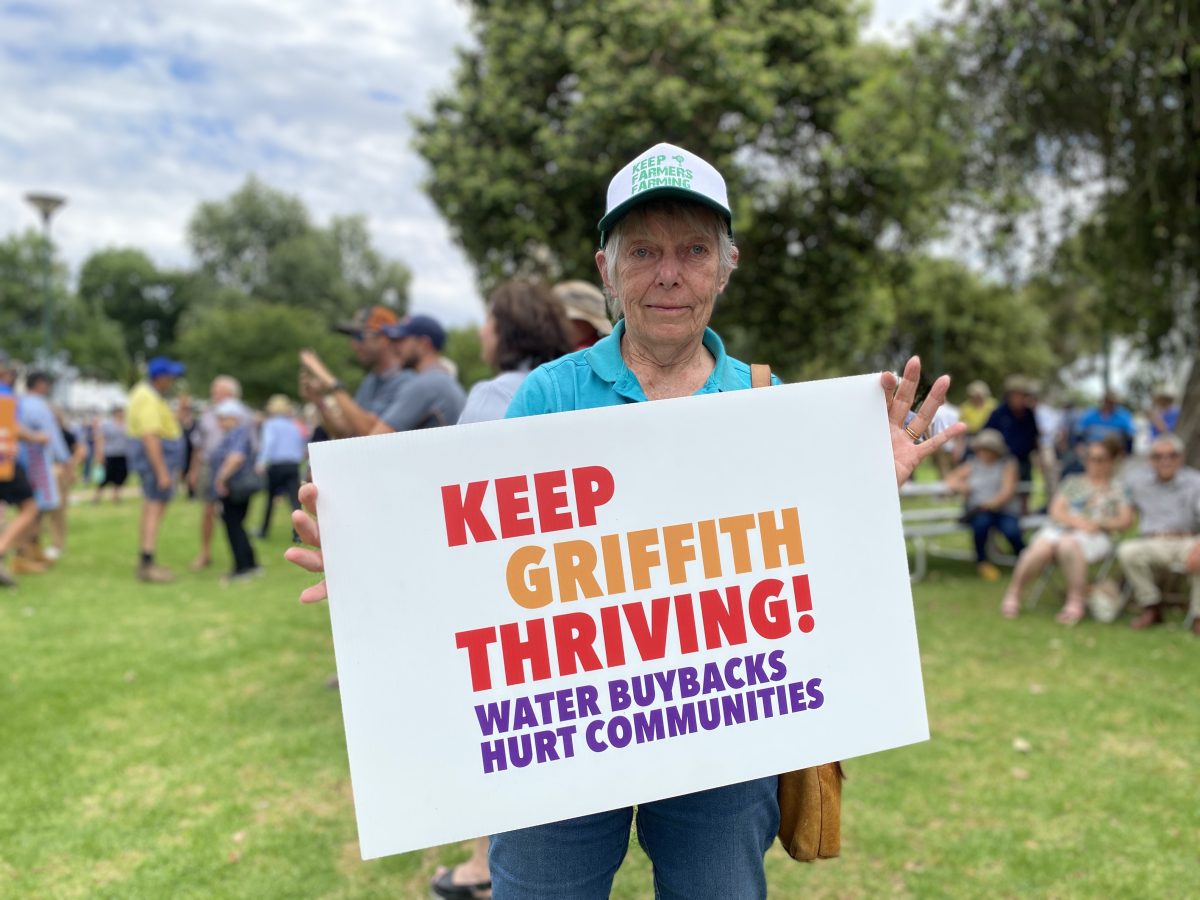
Former teacher Pat Cox makes her feelings known.
The peak farming body, the National Farmers’ Federation (NFF), which famously refused to support a 2019 “Can the [Murray-Darling Basin] Plan” protest rally directed at the then Coalition government, was onside for Tuesday’s protests against Labor.
“People in these towns are furious and they have every right to be … the Government’s approach so far has been lazy and divisive,” NFF president David Jochinke said. ”Their tunnel vision on buybacks means we’re overlooking smarter ways to achieve a healthy river.”
The Murray-Darling Conservation Alliance, which consists of peak environmental groups across NSW, Victoria, Queensland and South Australia, countered the protest rallies by urging the Senate to pass Labor’s bill.
“Our business has suffered huge financial losses due to too much water being extracted upstream,” Macquarie Marshes floodplain grazier Justine Bucknell said.
“We strongly support voluntary buybacks as they’re the most effective, efficient and economical way to restore real water, physical water, to the river system.”
Cr Andreazza countered this by saying buybacks would not deliver the environmental benefits the Federal Government hoped to achieve.
“Buybacks are not a path to a healthy river,” he said. ”The Commonwealth Environmental Water Holder cannot deliver the water they already have in their account [due to river constraints]. Let’s get the constraints sorted and get that water delivered without having to buy back more water.”
Constraints are physical restrictions, such as choke points, low-lying bridges, crossings or private land, that prevent water from flowing down the river.
Griffith farmers have argued that even if the Government buys back water, much of this water won’t reach its intended downstream destination because of these constraints.
Mr Nikolic urged Griffith residents to write to independent Senators Jacqui Lambie and David Pocock, whom he said were still undecided on which way to vote on Labor’s bill.







